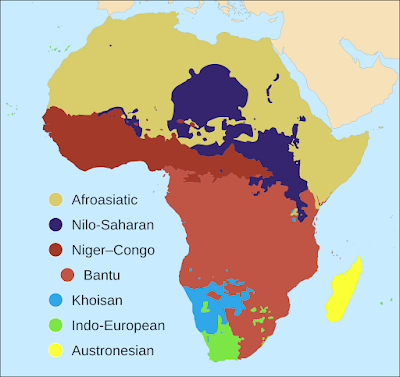The Resurgence of Military Coups in Africa: Causes, Implications, and the Road Ahead
 |
| Leaders of the Niger coup at a rally of coup supporters. Courtesy Anadolu Agency |
In the past few years, Africa has seen a concerning rise in military coups, marking a significant departure from a period of relative democratic stability. This trend, particularly pronounced since 2020, has seen abrupt leadership changes in several nations due to military interventions. The implications of these coups for democracy, governance, and international geopolitics are profound and demand a comprehensive analysis.
A Brief Overview of Recent Coups
From Gabon to Niger, Burkina Faso to Sudan, and Guinea to Mali, the continent has experienced a series of coups. Historically, post-independence Africa was no stranger to military interventions. However, the early 2000s saw a decline, making the recent surge reminiscent of the instability many African nations faced in the decades following independence. Factors such as poverty, poor economic performance, and previous coups often set the stage for further military interventions.
Interestingly, leaders of these coups often deny their actions as such, aiming for a semblance of legitimacy. Zimbabwe's 2017 military intervention, which ended Robert Mugabe's long rule, serves as a prime example.
Implications for Democracy and Governance
The military takeover in Niger and the subsequent coup in Gabon have sent ripples of unrest across the region. The extended rule of families, as seen in Gabon with the Bongo dynasty, has been a source of discontent. Such extended reigns are not unique to Gabon, and they highlight the challenges of transitioning to genuine democratic governance in Africa.
The political landscape is further complicated by the actions of leaders in neighbouring countries. For instance, following Gabon's coup, there were significant military changes in Cameroon and Rwanda and heightened security measures in Guinea-Bissau.
Why Are These Coups Happening?
Several factors contribute to the resurgence of coups in Africa. Socio-political crises, driven by factors such as economic underdevelopment, security challenges, and growing anti-French sentiments among African youth, play a significant role. For instance, Niger, rich in resources like oil and uranium, remains one of the poorest African nations. This paradox, partly due to France's uneven exploitation of uranium, has fuelled discontent.
Furthermore, the role of external actors, such as Russia, France, and the United States, cannot be overlooked. While some argue that local and regional influences are primary drivers, the presence and actions of these international players undeniably shape the political landscape.
.png) |
| A supporter of the coup in Niger holds a placard showing support for Russia. AFP Photo |
International Geopolitical Implications
The rise in military coups has not gone unnoticed on the international stage. UN Secretary-General António Guterres has expressed concern over the return of military coups, highlighting the growing sense of impunity and geopolitical divisions. The international community, especially former colonial powers like France, is often viewed with suspicion, seen as undermining economic progress and development in the region.
The Road Ahead
 |
| Capt. Ibrahim Traore at a press conference in Ouagadougou |
Whether this new wave of leadership will bring about genuine change or simply replace one form of dominance with another remains to be seen. However, one thing is clear: the international community must collaborate and support African nations in their journey towards lasting peace and democracy. The future of the continent depends on it.
_WITH_JOURNALISTS_AT_THE_6TH_ZIONIST_CONGRESS._SEATED_NEXT_TO_HIM_IS_Z._WERNER,_EDITOR_OF_THE_ZIONIST_PAPER,_DIE_WELT._%D7%AA%D7%90%D7%95%D7%93%D7%95%D7%A8_%D7%94%D7%A8%D7%A6.jpg)

Comments
Post a Comment